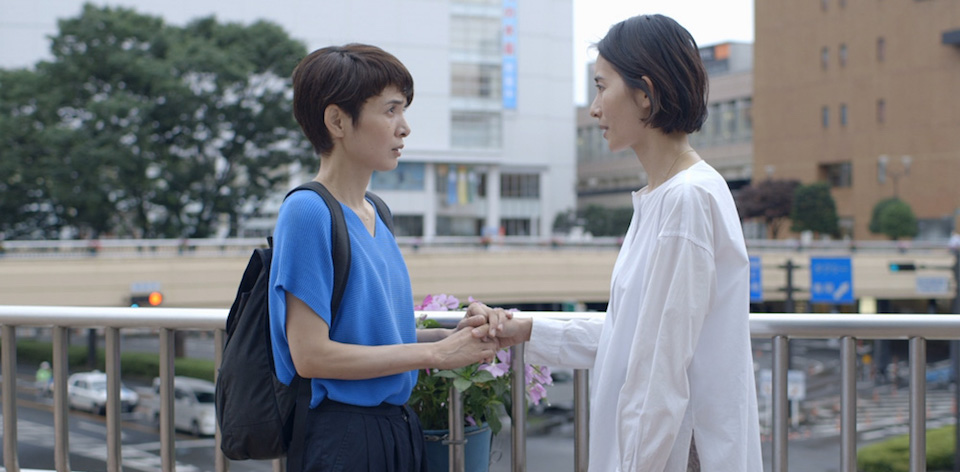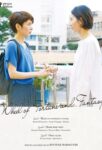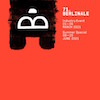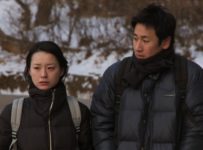Ryûsuke Hamaguchi is the kind of filmmaker who is practically made for festivals. From the 5-hour Happy Hour (2016) to the more compact Asako I & II (2018), his films often take a holistic view of intersecting human lives. With his latest film, which earned the Silver Bear at the 71st edition of Berlinale, he opens up the lives of three groups of people as if they were chapters in a book.
In the first chapter of this anthology — cheekily titled ‘Magic (or Something Less Assuring) — we’re introduced to model Meiko (Kotone Furukawa) and her friend Tsugumi (the singularly named Hyunri). Over the course of a long scene in a cab, Tsugumi (or just ‘Tsu’ or ‘Gumi’ depending on who you’re talking to) reveals that she’s met a man she’s had an instant connection with. Cut to Meiko visiting Kazuaki (Ayumu Nakajima) in his office, revealing that she was his ex-girlfriend and had cheated on him in the recent past.
Meiko believes that the titular wheel of fate has brought them together, that the magic ‘Kazu’ feels with Tsugumi is misplaced from them. An intense conversation between Meiko and Kazuaki will see your allegiances swing, as we sometimes side with Meiko and at others see her as an agent of chaos. In the most overt play on the title, she imagines several conversations in which she confesses everything to Tsugumi. A beat later and the moment is gone, and Meiko is left with reality.
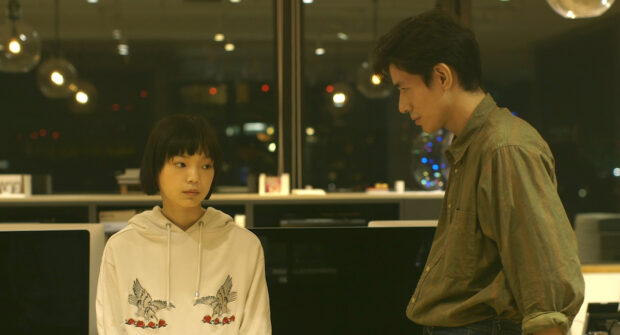
The notion of cruel fates is carried over into episode two, simply titled ‘Door Wide Open.’ Married mother Nao (Katsuki Mori) attempts to seduce Prof. Segawa (Kiyohiko Shibukawa), her former teacher and the recent recipient of a major literary award. As she reads erotic passages from his novel, he insists that his office door remains open. She insists on something else, and that’s when things go a little wrong.
Playing with the power dynamics of the #MeToo era, it doesn’t deal with a man trying to assert his power so much as the disproportional punishment a woman faces in this situation. Flashing forward five years, Hamaguchi continues exploring a minor thread of the double standards for what is considered to be ‘acceptable’ levels of sexual forwardness for women. It mirrors a conversation Tsugumi and Meiko have about sex on a first date in the the first chapter. “I don’t fit in well with other people’s standards,” concludes Nao.
The final, and arguably least successful part of the film, sees two women — Moka (Fusako Urabe) and Nana (Aoba Kawai) — meeting up after a high school reunion. After they return to one woman’s house, she confesses that she can’t remember the other woman’s name. They establish that they may not be who they think they are, but agree to continue to play along with the fiction.
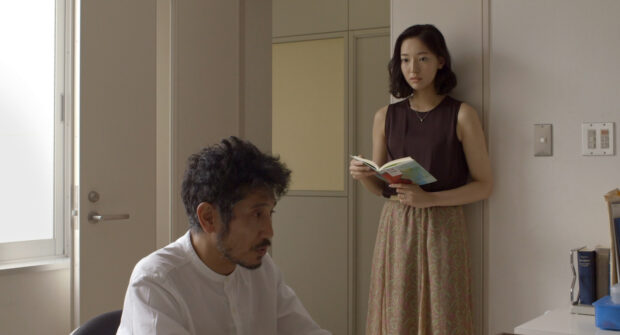
The extraneous setup establishes the segment as being set in the not-too-distant future, where a computer virus has leaked all of our info and the world is offline. It seems ultimately irrelevant to the plot, except that these people now have to rely on memory rather than social media to engage with old friends. It ends on a bittersweet note of parting and renewal, which is ultimately where Hamaguchi leaves us as well.
Much like Kōta Yoshida’s Sexual Drive earlier this year, the anthology format links these stories thematically. Each can be taken separately or as part of an interconnected whole. Unlike that film, there’s no overt characters or plot thread tying it all together. Hamaguchi instead relies on the notion of fate and chance, sliding doors moments and missed opportunities. If his previous films were about lives lived in their totalities, then this one is about the ones that never got to be. Indeed, the film’s Japanese title translates to something like ‘imagine by chance.’
Much like Hamaguchi’s previous works, it is set around conversations and close-ups. Each segment is anchored to a handful of places — a car, an office, a home or a train station. The director also uses time jumps, from a few days to a few years, to conveying the lingering effects of these moments. Unlike Happy Hour, here he’s content to take the shortest path to the middle.
WHEEL OF FORTUNE AND FANTASY (偶然と想像) has been likened to Hamaguchi’s collection of short stories following two weighty novels. Following this analogy, it’s then a matter of taking this as a series of vignettes that will have varying degrees of impact depending on how you arrive there. For existing fans of his work, there is much to enjoy here as a natural bridge between his longer narratives and the next stage of his already impressive career.
2021 | Japan | DIRECTOR: Ryûsuke Hamaguchi | WRITER: Ryûsuke Hamaguchi | CAST: Kotone Furukawa, Kiyohiko Shibukawa, Katsuki Mori, Fusako Urabe, Aoba Kawai, Ayumu Nakajima, Hyunri, Shouma Kai | DISTRIBUTOR: m-appeal, Berlinale 2021 | RUNNING TIME: 121 minutes | RELEASE DATE: 1-5 March 2021 (GER)

